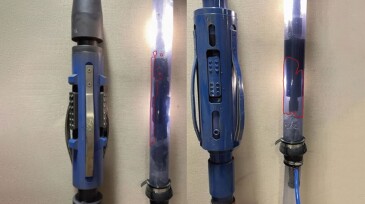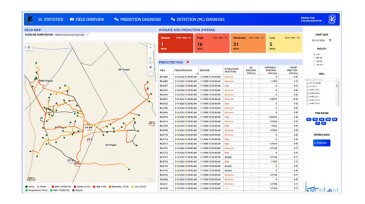Reservoir
Westwood links 2026 exploration outcomes to policies, with operators offshore Norway finding seven times more resources than those offshore the UK.
The purchase includes approximately 260 producing wells and expands Caturus’ footprint in the Eagle Ford and Austin Chalk.
The asset sale to an undisclosed buyer includes 360,000 net acres in Oklahoma.
-
Geophysicist Markos Sourial discusses advances in seismic imaging, the challenges of modern data processing, and what they mean for the next wave of subsurface professionals.
-
A new Eni/Petronas venture is targeting 500,000 BOE/D in output from combined upstream portfolios across Malaysia and Indonesia.
-
The merger creates one of the largest oil-focused independents in the US with output of 526,000 BOE/D.
-
BPX Energy will retain operatorship of the assets after the sale of its interests to private investment firm Sixth Street is complete.
-
Operators from across the region met in Muscat to share how lessons from pilot programs are shaping cost, scale, and technology priorities across the region.
-
A collaboration between a large independent and a technology developer used low-cost interventions to optimize production from unconventional wells.
-
Entrepreneurial mindsets with the motivation to explore new materials, not limited to focusing on traditional hydrocarbon gas, carbon dioxide, and chemicals such as polymer and surfactant, are becoming more important for broadening prospects beyond the conventional EOR scene.
-
This paper describes development of a high-temperature water-based reservoir drill-in fluid using a novel synthetic polymer and customized with optimal chemical concentrations and sized calcium carbonate.
-
This paper discusses a comprehensive hybrid approach that combines machine learning with a physics-based risk-prediction model to detect and prevent the formation of hydrates in flowlines and separators.
-
The objective of this microfluidic investigation is to identify and test two novel applications for magnetic fluids in porous media for subsurface oilfield applications.













